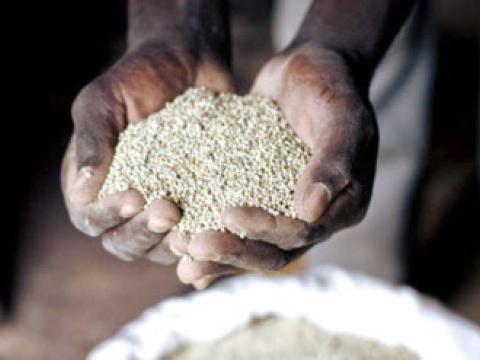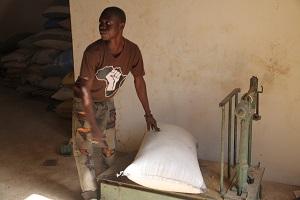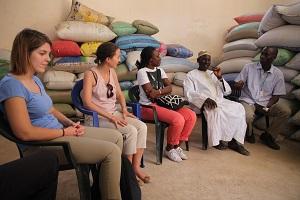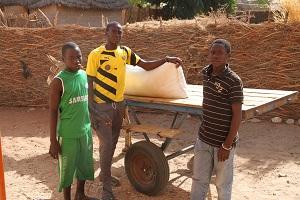Grain Banks of Diokoul: World Vision promotes household resilience through grain banks

World Vision volunteers have established a series of village grain banks in the Diokoul region. These banks are grain reserves, collected at harvest time and managed by an association of farmers and villagers.
A simple and effective solution for the most vulnerable families
Successive droughts and food shortages have left farmers in dire situations.The absence of reserves is one of the main causes of lack of food. To combat this, numerous grain banks have been set up in remote villages in order to guarantee grain supplies and food security for the local population, and also to protect stocks from fire.
How exactly do they work?
The food banks are facilities that stockpile grain after the harvest. Communities can then rely on year-round access to grain, even during the period between normal grain stocks running out and the following harvest.
- Firstly, grain is stockpiled to be later sold back to families at times of greatest need.
- Secondly, these banks exert a stabilising influence on prices, which are set by a management committee constituted of farmers. Taking into account these grain deposits persuades farmers to keep prices down.
- Thirdly, capital raised by the management committee may then be invested in other initiatives that serve the community.
A sustainable future based on sharing
The grain banks are organised and managed by the farmers themselves and bring sustainable benefits to the community. For example the price of grain is frozen in order to discourage speculation in times of hardship. Each farmer shares a part of his yield with the community, thereby contributing to the good management of resources throughout the year.


